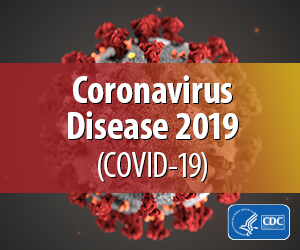On March 20, 2020, and effective immediately, the Federal Communications Commission (FCC) issued a ruling applying the Telephone Consumer Protection Act’s Emergency Purposes Exception to the novel coronavirus. This ruling applies specifically to hospitals, healthcare providers and government officials, allowing the appropriate entities to provide critical and life-saving guidance during the pandemic without fear or concern that doing so will violate the TCPA.
The FCC, acting on its on motion, specifically ruled as follows:
[T]he COVID-19 pandemic constitutes an ‘emergency’ under the Telephone Consumer Protection Act (TCPA) and [] consequently hospitals, health care providers, state and local health and other government officials may lawfully communicate information about the novel coronavirus as well as mitigation measures without violating federal law.
The ruling reached is exceedingly narrow. However, it should not necessarily be viewed as a referendum on, or narrowing of, the emergency purposes exception generally.
The FCC determined that the emergency purposes exception requires a two-step analysis, looking to (i) the identity of the caller and (ii) the content of the call. As it pertains to the coronavirus, the FCC concluded that (i) the caller must be a hospital, healthcare provider, state or local health official or government official (or person acting at the express direction thereof), and (ii) the call must be informational, made necessary by the outbreak and relate to imminent health and safety.
Call covered by the exception include: (1) calls from a hospital that provides vital and time-sensitive health and safety information; (2) calls from a healthcare provider to update the public regarding measures to address the coronavirus and (3) calls from local governments regarding shelter-in-place directives, quarantines, testing or school closures.
Calls not covered by the exception include (1) debt collection calls and (2) messages regarding commercial grocery delivery services or cleaning services.
This ruling should be viewed for exactly what it is -- a proactive order to ensure that healthcare providers and government officials do not hesitate to provide critical information simply because of the TCPA. The order is narrow, likely in large part because it was a proactive order without the ability to take comments and a variety of circumstances into account. For this reason, the ruling should be read as providing reassurance to the healthcare community and state and local governments, and not necessarily restricting generally the emergency purposes exception to mass crises (which would conflict with prior FCC guidance regarding the emergency purposes exception) and the entities that can take advantage of the emergency purposes exception.
That said, whether and to what extent other entities (i.e., a business notifying employees of an infected fellow employee with whom there was contact or an airline notifying passengers of an infected passenger) can take advantage of the emergency purposes exception in the current environment is to be seen. The FCC did not take a broad view and entertain the variety of entities that may need to communicate with employees, for example, though that may well have been as a result of the need to get guidance out quickly. The FCC may continue to update its guidance as the situation progresses.
For more information, contact a member of the firm's Retail, Hospitality & Consumer Products Group.
Mark S. Eisen at meisen@beneschlaw.com or 312.212.4956.
***
Please note that this information is current as of the date of this Client Alert, based on the available data. However, because COVID-19’s status and updates related to the same are ongoing, we recommend real-time review of guidance distributed by the CDC and local officials.

